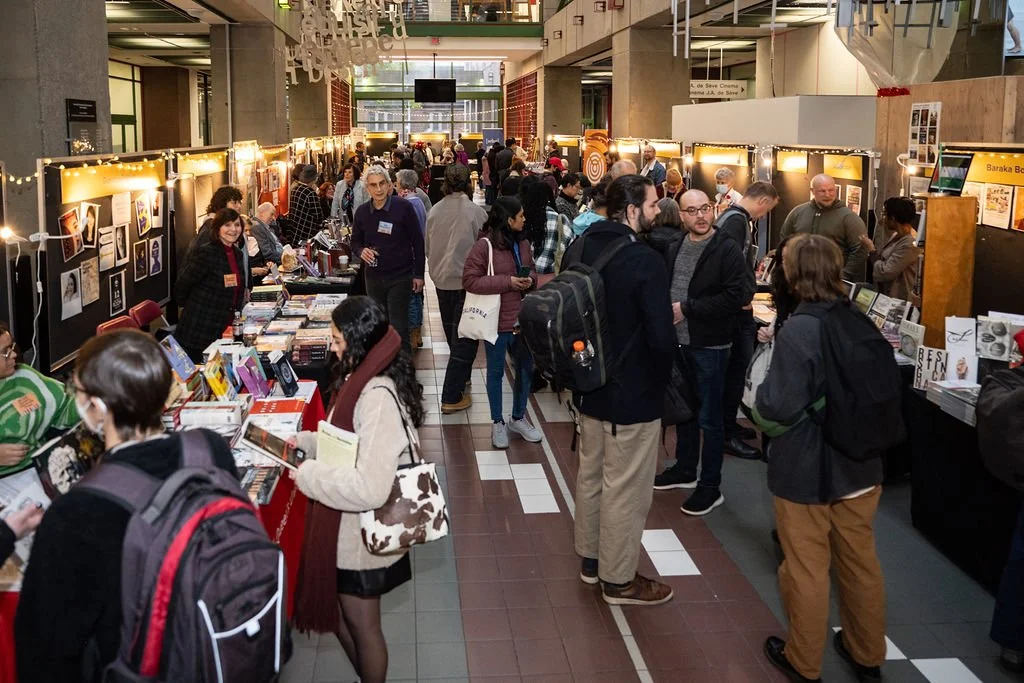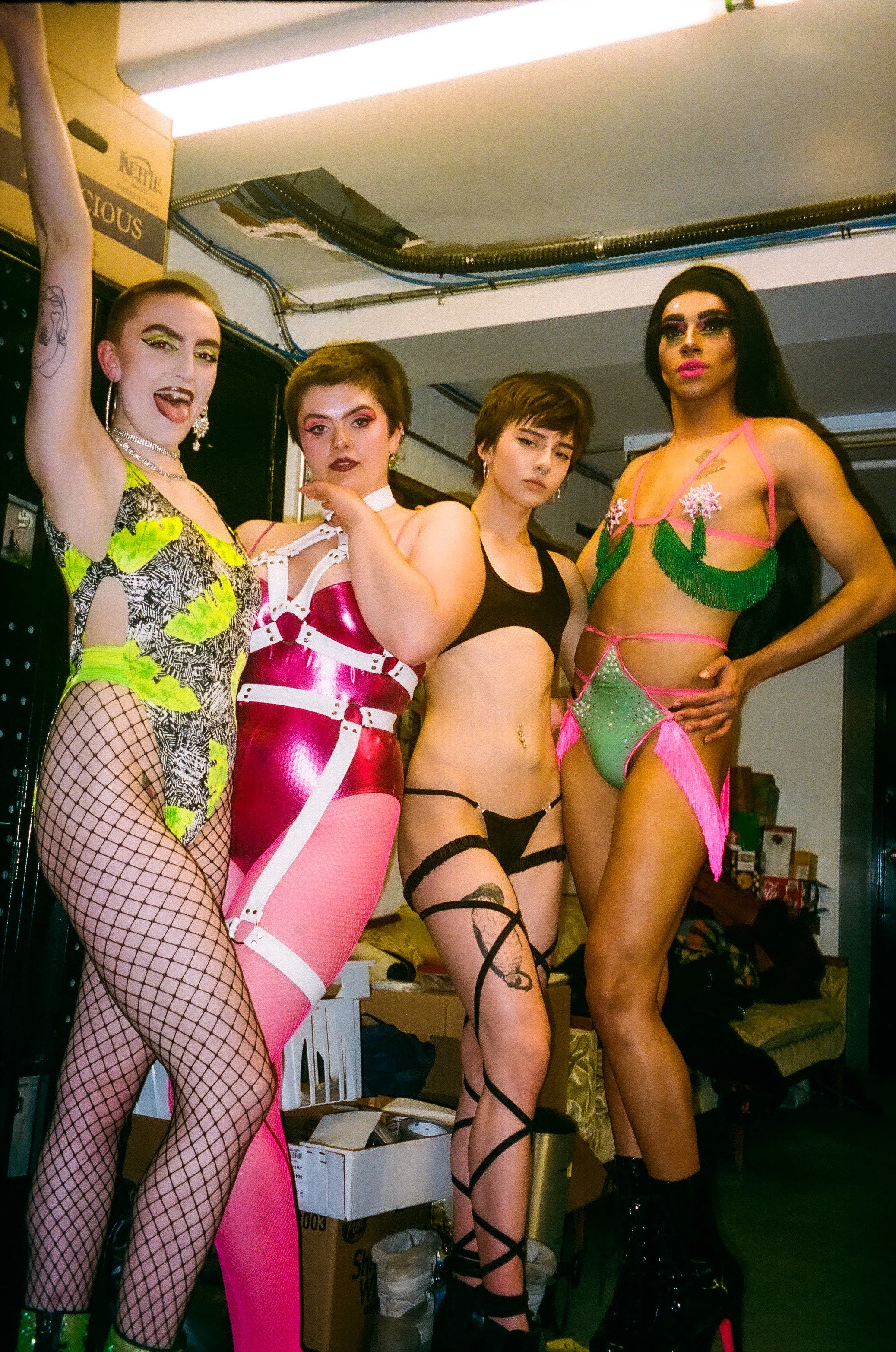Self-Isolation with Club Quarantine: Dancing with Drag Queens, Party Chickens, and Charli XCX
Yes, that is the chicken that Paris Hilton dressed up in an outfit on The Simple Life.
Within the cold, corporate realm of Zoom video conferencing lies the hottest club the Internet has ever seen. Hundreds of tiny screens give you a glimpse into the quarantined lives of partiers the world over - somewhere a baddie is voguing in their neon thong and matching angel wing harness, while a drag queen performs a song from her bathtub. Someone else checks their phone... Now suddenly a farmer is holding up a chicken, reminiscent of the one that Paris Hilton once dressed up on The Simple Life. Like ChatRoulette, the screen changes again and we see a shirtless hottie cooking spaghetti and hitting a bong.
Page after page of video screens showcase people twerking, pole-dancing, making out, and sliding around in a kiddie pool in their living room. Others are just vibing on the couch, with a glass of wine and a virtual background of their choice. Then there’s the infamous chat - blowing up with saucy flirtation, track ID requests, “afterparty” and exclusive “club bathroom” invitations, and endless love and support for everyone online. It’s the epicentre of queer nightlife in this precarious time.
Welcome to Club Quarantine, the virtual gay club we never knew we needed. We had the chance to catch up with Club Q founders on what it’s like maintaining one of the hottest queer Internet dance parties every night of the quarantine.
Before every DJ (and everyone else, too, honestly) was doing an Instagram live stream from their livingroom, four Toronto-based artists and friends, Ceréna, Casey MQ, Brad Allen, and Mingus New, were video-chatting on the first day of quarantine and debating the serious implications that social distancing would have on the artist community. They would no longer have a space to perform, an audience, or a source of income, for that matter. However, it didn’t take long before a few friends hanging out online became a nightly congregation of hundreds of people from all over the world, featuring iconic live drag performances, celebrity DJs, and heaps quarantined cuties shaking their booties.
Now, every night at 21:00, the Club Q page drops a Zoom meeting code and password to join the party - and until midnight, you are no longer dancing alone in your bedroom. You’ve got a reason to dress up, run into some friends, and casually flirt with strangers. No guestlist, no cover, and no need to leave the house. It’s an important space for queer people to find friends and comfort in this surreal time. Not only is it incredibly convenient, Club Q has revolutionized nightlife accessibility - people whose disabilities normally prevented them from going out can now take part from the safety of their homes.
The Club Quarantine hosts have a big job. If you’re wondering whether the hosts ever get tired, organizers Ceréna and Brad Allen have assured us that yes, they’re exhausted. Every night, they have to book new lineups with a minimum of three artists, maintain a safe and open space for all attendees, and deal with any technical difficulties that may occur. They spend their days scouting Instagram for LGBTQI+ artists who could stream live performances from their homes, and behind all the virtual backgrounds, they’re constantly moderating the chat to shut down bots and trolls who “come out to play.”
In fact, cybersecurity has become a major concern on the Zoom platform, which has faced objection from governments in the wake of security loopholes allowing hackers to spy on meetings and access files. How can you ensure having a safe space in a virtual world? The majority of Club Q participants are marginalized people who are at a high risk. Organizers are well aware of the risks involved with using this platform, and have implemented chat monitors to maintain some level of control. Meanwhile, they are also keeping participants informed of the “dark underbelly of the internet that we may not be aware of, but have to deal with.”
Nightly performances have featured Charli XCX, Tinashe, and Pabllo Vittar alongside lesser-known artists - everyone gets the same level of enthusiasm, and everyone gets paid. Party hosts are prioritizing the showcasing of local talent, giving budding artists essential monetary support, and in some cases, the opportunity of a lifetime. RedBull Canada made a donation back when Club Q had a mere 1000 followers on Insta (they now have over 41k), and the organizers have set up a PayPal account where you can tip performers and help keep the party going. Speaking of which, when asked about the future of Club Quarantine, Ceréna and Allen are determined to keep going, “It’s like learning how to run a large organization.” Thanks to huge levels of community support, the operation can continue to run smoothly.
In the midst of this crisis, the queers have reclaimed the Internet to keep an isolated community alive. Support Club Quarantine by donating here.
Be sure to catch our previous Also Cool guest, Frankie Teardrop’s set live on Club Quarantine TONIGHT, raising funds with LIP for Hot Crip. See you on the virtual dancefloor!



























